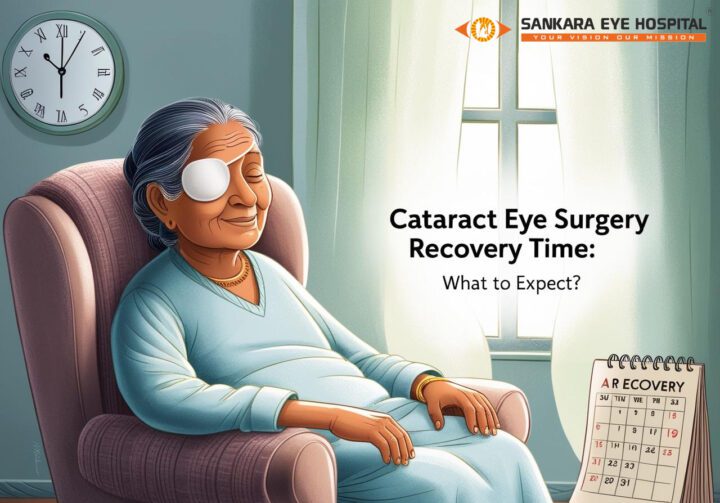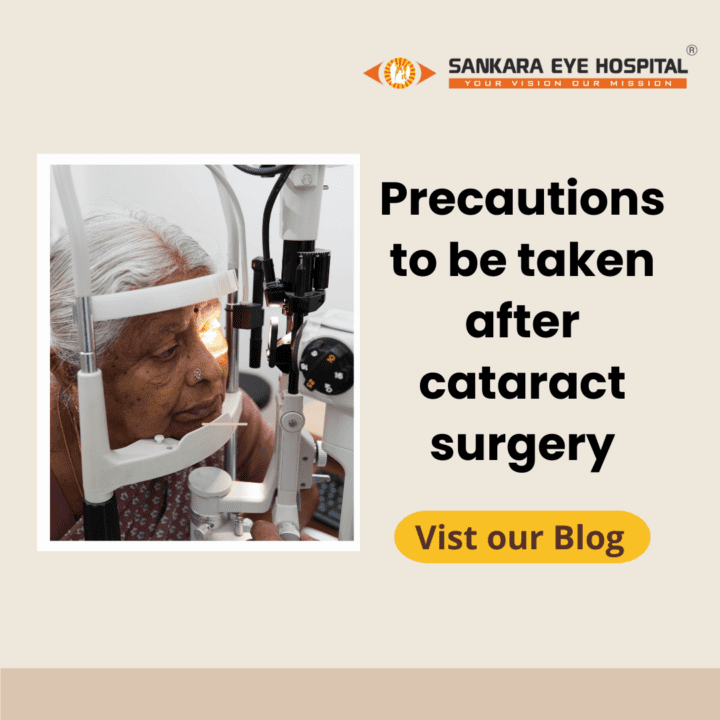Worried about vision loss with aging? 7 simple ways to prevent it
Worried about vision loss with aging? 7 simple ways to prevent it
Ageing doesn’t stop with grey hair, wrinkles, and back pain. It is common to notice changes in your eyesight. There are multiple eye-related conditions experienced by ageing adults, like, glaucoma, dry eyes, age-related macular degeneration, and cataracts.
Our vision is vital to our daily tasks and sustains our independence. Hence, it is crucial to save eyes from damage and keep them healthy. Although ageing is inevitable, you can always reduce the risk of vision loss. This article will look at practical ways to protect your eyes and prevent vision loss with age.
Ways to Protect your Ageing Eyes
The quality of vision reduces due to various factors, including age and lifestyle factors. While you can’t control hereditary conditions of glaucoma or macular degeneration, you can reduce the risk of vision loss through healthy lifestyle choices.
Let us have a look at steps you can take to prevent loss of eyesight with age:
· Eat Nutritious Healthy Food
What you eat directly affect your eyes. Consuming a well-balanced diet can help your eyes stay healthy. Adding a range of vitamins, oil, and minerals to your diet can keep many eye-related issues at bay even in old age. For instance, you can consume Vitamin-C-rich fruits like orange and citrus to boost your immune system, protecting you from eye-related infections and diseases. To prevent macular degeneration, you can eat Vitamin-E-rich food like walnuts, pistachios, and almonds.
Studies have also shown the importance of Omega-3 fatty acids in reducing eye-related diseases and dry eyes, which is common with ageing. Therefore, incorporate omega-3 fatty acid-rich food like leafy vegetables, sardines, cod, chia seeds, etc.
Preserving your vision starts with consuming the right food. So, make the right choice of healthy foods.
· Quit Smoking
It is widespread knowledge that smoking affects your heart and lungs. But what we forget is smoking can lead to vision loss too. Research shows that smoking increases cataracts and age-related macular degeneration (AMD).
AMD is a condition where it affects your central vision. Doing everyday tasks like reading or driving becomes challenging when developing AMD. Smokers are twice more likely to develop AMD than non-smokers. If you smoke, STOP now.
· Put on your shades
Wear sunglasses whenever you are out. It is the easiest and most straightforward way to protect your eyes from ultraviolet (UV) radiation.
UV radiation increases the risk of cataracts since it affects the retina and lens. So, make sure you wear protective sunglasses from UV-A and UV-B protection. Also, ensure your shades cover your eyes completely.
· Stay Physically Active & Maintain a Healthy Weight
Exercise regularly and maintain a healthy weight. If you are overweight, it affects your blood sugar levels and heart, and vision. Type-II diabetes is common among people who are overweight or obese, and it can damage tiny blood vessels in the eyes. This condition is called diabetic retinopathy, which is extremely dangerous for your eyes.
To protect your eyesight, you should exercise regularly and maintain a healthy weight. It is also recommended that you have a regular eye exam at the Best eye hospital for diabetic retinopathy
· Limit your Screen time
Using smartphones, tablets, and laptops for work, streaming shows and movies to play games has become common in our everyday lives. However, looking at the screen for prolonged hours can strain your eyes and blur your vision.
Though it is nearly impossible to live away from these gadgets, remember to take breaks between them. You can give the 20-20-20 rule a shot. Every 20 minutes, remember to take your eyes away from the screen, look 20 feet away from the screen for 20 seconds. This simple rule can help reduce the strain on your eyes.
· Manage Chronic Conditions
Other than diabetes, high blood pressure, multiple sclerosis can adversely affect your eyesight. These health conditions result in inflammation of the optical nerve, which causes excruciating pain and complete vision loss.
You cannot prevent these conditions, but it is possible to manage these chronic conditions by choosing healthy food habits and proper medications.
· Schedule an Annual Eye Check-up
The best way to know if your eyes are healthy is to schedule an appointment with your ophthalmologist each year. Certain eye diseases might not show any symptoms, but an eye specialist can deduct it before it worsens. A regular eye check-up is ideal for ageing adults to check their vision and ensure their eyes’ wellness.
Conclusion:
You might not have realized how your weight or eating habits affect your vision, but they do play a crucial role. Making significant lifestyle changes and living a healthier life might not protect you from all eye-related diseases. But, remember, prevention is better than cure.
Eat right, drink lots of water, stay fit, and protect your eyes.




